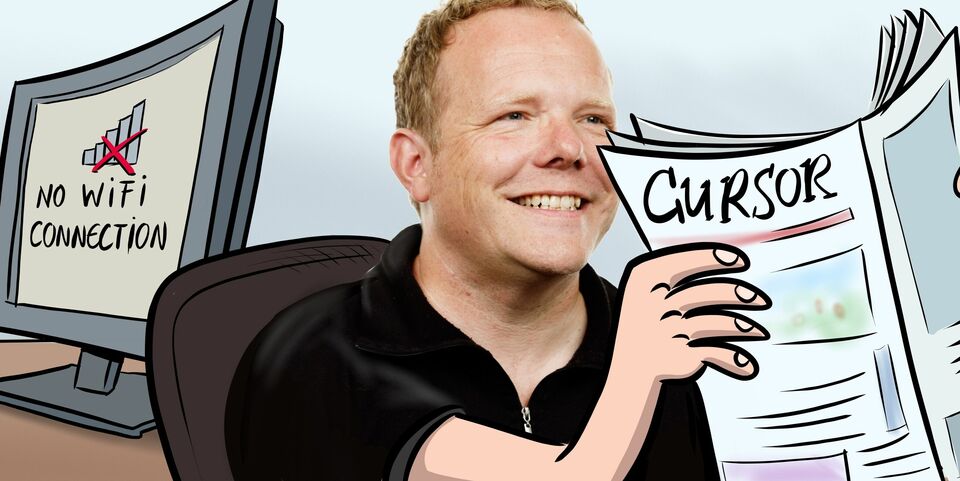Brainmatters | Waste paper
The way things look now, this is the last Cursor on paper. Personally I like trees, so the sustainability argument appeals to me. Still, I am inclined to think that in migrating wholesale to digital and online we are losing something essential. And I'd like to take a moment to reflect on that. Call it an elegy for waste paper.
Why does paper work so well? First off, it starts up immediately - I don't need to spend minutes pressing buttons or waiting for an online connection for my telephone, tablet or laptop. Paper doesn't insist on any imperative software upgrades before I can settle down to enjoy reading. The display and the processor need no battery, so there is never any frantic hunting for a charger in response to a low battery message. While I'm reading I don't need to accept any cookies, I never receive any unsolicited updates from my operating system, browser, virus scanner, Acrobat reader, Flash player, and the like, nor any push messages from Twitter or Facebook, new email pings or Lync calls. Instead I simply take a quiet moment to drink a cup of coffee (with a cookie) while I read my newspaper, finding out about everything that is going on at our fine university.
Cursor: for in the bathroom, on the train, for drawing moustaches on, or lighting a fire with
I love the physicality of paper - its tangible, tactile presence. If your day involves hours of typing, clicking and swiping away on a wide variety of glass plates, as mine does, it is nice to hold something physical now and then, something real. Something you can take a pair of scissors to when you find an interesting item for the notice board, that has photos on which your children can draw a moustache and a pair of spectacles. An information carrier that's easy to take into the bathroom or bathtub, and that is just as easy to read in sunlight. A newspaper that you might chance upon in the canteen, or that you might casually leave in the train for the next traveler. Paper that with a few quick folds can be fashioned into a hat or, if need be, used to light a fire in the grate.
Paradoxically, we think that digital information is easier to both store and make available. In the short term this may well be true but over the longer term it most definitely is not. We are living in an era of digital amnesia - the software- and hardware systems that store our information and can present it are evolving at an extraordinarily rapid pace, yet we are not paying enough attention to the issue of digital sustainability. Without the systems of yesteryear, it may well be that the information of yesteryear is inaccessible. It is ironic that even today we can easily read the notes of Leonardo da Vinci dating from the fifteenth century, but not those of Marvin Minsky from the 1950s. What traces will be left in five hundred years' time of our present-day writings, blogs and tweets? Perhaps I will secretly ferret away a pile of Cursors after all. Long live waste paper!
Wijnand IJsselsteijn | Professor of Cognition and Affect in Human-Technology Interaction



Discussion